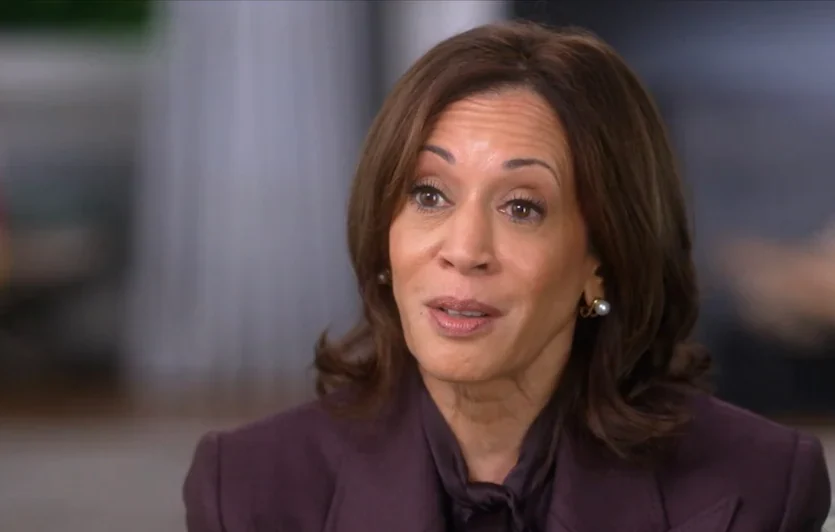October 21, 2024
In the most recent controversy over CBS’s “60 Minutes,” CBS admits it has cut and edited Vice President Kamala Harris’ interview to make her answers “succinct”. This recognition came amid accusations from former President Donald Trump and his supporters that the network purposefully edited the interview to make Harris look better.
The controversy began after a preview of the interview aired on October 7, showing Harris giving a meandering answer about Israel, which critics dubbed a “word salad.” When the full interview ran the next day, Harris’s response to the same question seemed shorter and more comprehensible. The ambiguity caused CBS to accuse her of doctoring the video in order to paint Harris more positive.
CBS answered those questions on Sunday saying Trump’s accusations were “false.” The network defended their position by claiming that different portions of Harris’ answer appeared in the preview and during the live interview. The network justified the cut, saying the resulting edit was meant to simplify the answer and leave room for other topics in the 21-minute interview, which was all over the floor.
Bias and Editing Style Charges
Trump, who has often been critical of mainstream media, accused CBS of manipulating the interview to cover for Harris, stating that his team would “subpoena their records” and that CBS’s actions represented an ongoing bias against conservative figures. He also reiterated his previous calls for CBS’s broadcast license to be revoked, citing what he described as “dishonest reporting” aimed at bolstering Democratic politicians.
Another Trump campaign spokeswoman echoed these accusations, indicating that CBS “admitted to doing exactly what President Trump accused them of doing.” The same spokeswoman also referred to CBS’s edits as a media conspiracy to disparage Democrats.
Preview vs. Interview: What Changed?
During an interview-preview, Harris gave a somewhat fragmented answer on Israel: What we have been able to do is create many movements in that region by Israel that were highly motivated by, or because of, lots of things, including the fact that we support what has to happen in the region.
However, when the interview aired, her response was more concise: “We are not going to stop pursuing what is necessary for the United States to be clear about where we stand on the need for this war to end.”
CBS justified this editorial choice, telling us they cut down questions involving politicians, celebrities or athletes to keep them intelligible. The network insisted that the spirit of Harris’ response was preserved, just condensed to fit time and other agendas.
Concerns About CBS’s Objectivity
To add to the controversy, CBS’s President Wendy McMahon once donated $6,100 to the 2020 campaign of US President Joe Biden. These contributions were given as McMahon was still working for ABC, until her move to CBS in 2021. CBS News employees are barred from making political donations, which raises a question of conflicts of interest. Though CBS maintains that McMahon did not edit the Harris interview, her prior donations have further undermined CBS’ impartiality.
This battle over CBS’s covering of the Harris interview highlights broader tensions between conservative commentators and the mainstream media, including accusations of media bias and edit manipulation. Trump’s accusations follow a line of more general criticisms that he’s made of the media over the past few years, alleging them to tip the scales towards Democrats and even editing interviews in order to influence the vote.
Calls for Transparency
In response to CBS’s explanation, Trump’s campaign has pressed the network for more transparency, and some additional interviews may have been edited this way as well. The standoff highlights the growing feud between conservative leaders and major media in the lead-up to the 2024 election.
As the controversy unfolds, CBS has reiterated its invitation for Trump to appear on “60 Minutes” for a formal interview. The network remains firm in its stance that it did nothing improper, asserting that the edit of Harris’ response was a standard journalistic practice.
But for now, the integrity of political interviews and journalistic partisanship is still a divisive topic ahead of the 2024 elections. As both sides accuse one another of lying and propaganda, the media’s power to influence the public mind returns to centre stage.
Sources:



